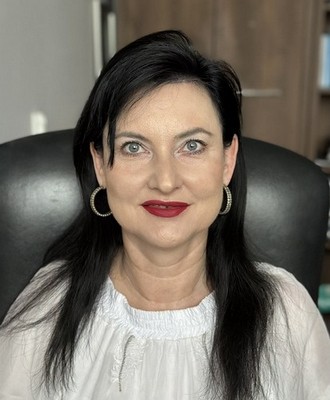53rd WEFTA Conference, 13th-17th October 2025, Gdańsk, Poland
Keynote Speakers

Dr. Eng. Joanna Szlinder-Richert, Professor of NMFRI
Dr.Eng. Joanna Szlinder-Richert, Professor of NMFRI, graduated from the Faculty of Chemistry at the Technical University of Gdansk in 1997. After graduation, she has started her research on the activity of antifungal antibiotics - derivatives of amphotericin B, and in 2002 she completed her doctorate.
In 2003, she joined the National Marine Fisheries Research (NMFRI) and her further professional career has been associated with fishery, marine environmental research, and seafood processing technology. She holds her habilitation in discipline of oceanology since 2014.
She initially worked at the NMFRI at the position of a specialist, and this allowed her to acquire high practical skills in analytical chemistry, especially chromatographic techniques, which she later used in her scientific work. In 2009 she obtained the scientific position in the Department of Food and Environmental Chemistry and in the period between 2014 and 2018 she acted as the head of the Department. Currently, she holds the position of the NMFRI Deputy Director for Scientific Matters, coordinating research activities aimed at supporting implementation of the EU Common Fisheries Policy (CFP), which calls for ensuring economically, environmentally and socially sustainable management of fisheries resources. Since the CFP covers all aspects of fishing- from fishing grounds to the consumer, it requires multidisciplinary research related to stock biomass assessment, the impact of environmental factors on ichthyofauna and environmental impact of fisheries, as well as constantly improving processing technologies and identifying the best strategies for the valorisation of byproducts.
Joanna Szlinder-Richert throughout her scientific career has been particularly involved in several research topics relevant to marine environment and its exploitation.
The scope of her activity covers a wide variety of topics, like the presence of contaminants in marine ecosystems and its impact on the quality of fish habitat and seafood, research on health-promoting qualities of seafood and aquaculture products, waste management in fish processing plants. The fatty acid research she has been conducting, is aimed not only at assessing the health impact of food, but it is also applicable to the study of trophic relationships in marine ecosystems. Her expertise concerning the presence and fate of contaminants in the marine environment allowed her to be involved in the work related to the national implementation of the Marine Framework Directive which is being carried out at the NMFRI for the Chief Inspectorate of Environmental Protection. In addition, she actively participates in the work of the Inter-Ministerial Panel on Hazardous Materials Deposited in Polish Maritime Areas, as a representative of the Minister of Agriculture and Rural Development.
Recently, she has initiated research at the Institute into the use of near-infrared spectroscopy, as a green technology, that may have wide applications in both fisheries management and food quality assessment.
In recent years she has been involved in several research projects aimed at applying innovative solutions in fish processing and promotion of production in Recirculating Aquaculture Systems as environmentally sustainable method of addressing the market demand for fish, and provided training for representatives of the fish industry, administration and veterinary authorities.
During the WEFTA 2025 conference, she will briefly present the Polish fish processing industry and the milestones that caused its development and led to the state we are witnessing today. She will also present results of the study conducted at the NMFRI about the quantity and quality of wastewater generated during fish processing in Polish plants depending on the production profile. The data on load of nutrients and the effectiveness of the mechanical-chemical pretreatment implemented at studied facilities will be discussed in the context of environmental issues and the possibility of recovery and reuse of valuably components.

